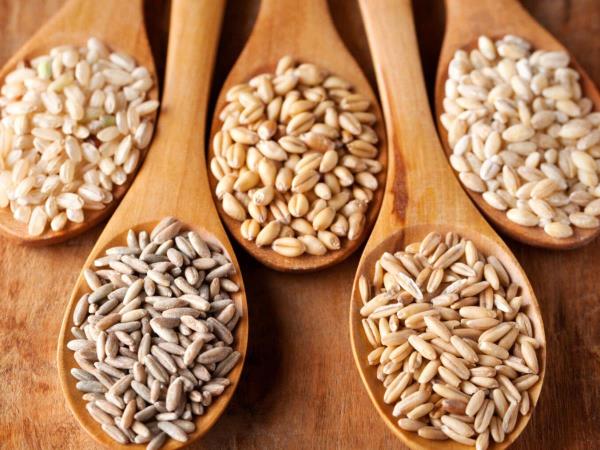In simple terms - selenium acts as a shield against free radicals, harmful molecules that develop due to stress, pollution, processed foods, as well as from the sun, alcohol, and cigarettes. Free radicals attack our cells and age them, leading to various diseases - mainly cardiovascular and cancerous conditions.
A study published in the Journal of the American Medical Association (JAMA) years ago showed that people with higher levels of selenium in their blood are up to 24% less at risk for heart diseases.
Selenium as a body assistant: from the heart to the thyroid
Selenium is important not only because it cleanses the body of free radicals. It is also a key component of the enzyme glutathione peroxidase - which is a natural cleansing molecule that protects cell walls and enables the body to defend against damage, inflammation, and even cell mutations.
It helps maintain the elasticity of blood vessels, reducing pressure on the heart. It also helps people with arthritis, as it relieves inflammation in the joints and eases movement. A study in Sweden showed that patients with rheumatoid arthritis who received additional selenium felt 30% less joint pain after two months.
When it comes to eyes, selenium is an ally for those concerned about age-related macular degeneration, which is the most common cause of blindness in the elderly. It is a part of the retina that enables sharp vision, and if damaged by free radicals, serious vision problems can occur.
Let's continue - the thyroid. You might not have known, but this small gland in the neck is the most selenium-dependent organ in the whole body. It cannot function normally without it. Thyroid autoimmune diseases, such as Hashimoto's syndrome, are directly related to a lack of selenium. A study in Germany, involving more than 600 women, showed that those with sufficient selenium intake had a 36% lower risk of developing thyroid inflammations.
Male fertility and selenium: more than just a pinch of hope
Ancient folk healers often recommended men who could not conceive children to eat more fish, walnuts, and eggs. Today we know why - all of these contain selenium. It significantly influences testosterone production, but more directly, it affects the formation of healthy, motile sperm.
According to the World Health Organization (WHO), today, 1 in 6 couples worldwide is infertile, with half of the issues being on the male side. In a study from Italy, men who consumed 100-200 micrograms of selenium daily saw a 56% improvement in sperm motility after three months.
Even hair, skin, and nails say thank you
If your nails often break, hair falls out, or you feel that your skin lacks luster, it may also be due to a lack of selenium. The body needs it for keratin formation - it is the protein from which our hair, nails, and the top layer of the skin are built.
One study conducted in Taiwan showed that individuals with sufficient selenium intake had a 47% better hair growth and fewer nail breakage issues.
Where to find selenium - and why be mindful of the amount?
Nature offers us selenium in abundance, if only we know where to look. Some of the best sources include:
- brazil nuts, where just one nut is enough to meet daily needs (contains from 68 to as much as 91 mcg of selenium),
- fish, especially salmon, tuna, and cod,
- seafood, such as shellfish and shrimp,
- whole grains and seeds - oats, sunflower seeds, brown rice, barley,
- meat, especially liver and kidney,
- as well as eggs and garlic, which are often called a remedy for everything by the elderly.
The recommended daily intake for an adult is approximately 55 micrograms (mcg). However, many researchers and doctors believe that a more optimal intake is between 100 and 200 mcg daily, especially during times of stress, illness, or increased physical activity.
Attention: here also the golden rule applies - more is not always better. The upper safe limit is set at 400 mcg per day. Although it is almost impossible to consume too much selenium through food, it can quickly happen with dietary supplements.
Selenium poisoning manifests as:
- hair loss,
- changes in nails (yellowish, brittle),
- fatigue, nausea, even vomiting.
Such reactions are rare and almost always associated with prolonged intake of excessive doses of supplements.
Selenium deficiency - the silent enemy of the immune system
Although it may seem like there is enough, selenium deficiency is not so rare. Especially in people who:
- live in areas with low selenium in the soil (parts of China, Europe, including Slovenia),
- primarily eat processed foods without fresh produce,
- have problems with the intestines or metabolism.
When there is a lack of selenium, the body weakens. White blood cells - our soldiers against viruses and bacteria - do not function properly. Even the mammary glands in breastfeeding mothers produce less protective substances. Therefore, many doctors recommend additional intake in times of flu, COVID, or increased exposure to infections - often 200 mcg per day, together with vitamin E and zinc, which together form a kind of "health trio" for the immune system.
Balance
Selenium is not a passing trend. It is an ancient mineral that has accompanied us for millennia. In folk medicine, it was respected, even though its name was not known. When they said that "fish cleanse the blood and mind," they were actually talking about the effects of selenium.
So incorporate it into your daily life - with a handful of nuts, a fish lunch, or a bowl of oatmeal. Do not exaggerate with supplements unless advised by a doctor. And the next time you think about strengthening your body, remember - sometimes the greatest power is given to us by something we do not even see.









 Would you like to be informed about news on the website?
Would you like to be informed about news on the website?

